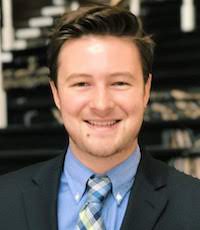Recently, conservative circles have seen a sharp uptick in support for “Integralism.” Integralism is the belief that “the state should officially endorse the Catholic faith and act as the secular arm of the Church by punishing heresy among the baptized and by restricting false religious practices if they threaten Catholicism,” according to Robert T. Miller, professor of law at the University of Iowa. Integralism’s proponents include thinkers such as Harvard legal scholar Adrian Vermule, King’s College philosophy professor Thomas Pink, and Ave Maria University philosophy professor Joseph Trabbic. Integralists see theocracy as a necessary solution to the modern problem of the corrupting influence of the increasingly aggressive secular state. Integralism flows from the same post-liberal sensitivity to modernity’s problems that Patrick Deneen and Alasdair MacIntrye have articulated.
This attraction may be an understandable response to a “liberal” government and political culture which are increasingly inimical not only to Christian belief, but to the vision of the human person which is the core of Judeo-Christian and Greco-Roman values. However, Integralism errs in its evaluation of the human person, which in turn leads to a flawed view of the state.
Although Integralists are not a monolithic group, the case which Pink makes for an Integralist state in Public Discourse is a straightforward and concise example of the Integralist perspective. (See here and here.) Pink’s argument is two-pronged, attempting on one hand to establish Integralism as a central part of Roman Catholic teaching while also making an argument based in natural law. While a fascinating discussion could be had about the technicalities of Catholic teaching (which Robert Miller addresses here), I will focus on Pink’s natural law argument, which centers on a realist philosophy of what states “really do.”
Pink argues that the state is not simply a coordinator of disparate ends, but it has a “teaching function … to facilitate the operation of the force of reason on us, especially as this concerns the flourishing of a political community.” States, he argues, are constantly regulating moral belief in the form of laws against theft, racism, fraud, and much more. In light of this fact, Pink argues that the only route forward for good Christians is to embrace a state which “confesses” the true faith, since any alternative will eventually result in a coercive enforcement of secular, anti-Christian doctrine. Pink rejects the liberal “opposition to anything that savors of the coercive regulation of belief” as naïve about what states really do.
Pink’s critiques of modern secular “doctrine” ring true. However, there is an error in Pink’s evaluation of the individual. Pink claims that religious liberty itself is not in fact central to the Second Vatican Council’s Declaration on Religious Freedom, Dignitatis Humanae. Rather, he asserts, the document merely acknowledges that religious liberty is necessary in an age of secular states, since the Church does not directly exercise coercive authority.
While Pink cites the section of Dignitatis Humanae that emphasizes religious liberty, he does not quote the justification which it gives in the following paragraph. According to the second paragraph of Dignitatis Humanae, religious liberty is not a stopgap measure but rather a reflection of the free nature of the human person. It states, “Men are bound to seek truth, and cannot do that in keeping with their nature unless they have freedom of religion.”
Pink’s decision to overlook the essential truth of human freedom – the ability to choose the good – leads to a misrepresentation of the role of the state. Pink is right that the state has a teaching function, but the role of the state is not to make people choose the good but to create the conditions for men to choose the good freely. Natural law scholar John Finnis of Notre Dame expresses this in his book Natural Law and Natural Rights, writing that the objective of the political community is “the securing of a whole ensemble of material and other conditions that tend to favor the realization, by each individual in the community, of his or her personal development.” Finnis does not think that personal development is purely subjective; it falls into what he calls “basic forms of human good” such as marriage, life, play, and knowledge. However, only the human individual, and not the state, can choose which forms to participate in and how to do so.
The state’s role in creating the conditions for free human action means that it can outlaw some things that would make society unsafe for free action, such as murder. A state can even do certain things to encourage a moral society; for instance, a true conception of marriage can and should be enshrined in law. In fact, the state can even encourage religion by incentivizing moral behavior and cooperating with religious institutions. As Gerard Bradley has pointed out, the American system of government was not founded as on radical secularism but with a strong and inherently religious ethos.
Although the state can incentivize citizens to choose the good, it cannot try to force them to do so without ultimately dehumanizing them. It seems that this attempt would include something like Integralist coercion and punishment for those who do not believe Roman Catholic doctrine in its totality. Such activity would cross the line between creating conditions for free human choice and depriving people of the right to make any other choice. This is also the fallacy of modern progressivism, which sees human beings as pawns on a chessboard, to be moved according to their leaders’ whims. What Adam Smith called the “man of system” fallacy can be attractive, because it is much easier to view human society as a problem to be solved rather than a community of free persons.
To propose that a system like Integralism will fix social ills is a conservative “system fallacy.” Laws can only go so far, and in the end, Pink’s goals of a virtuous society cannot be accomplished by political coercion, but only by a limited government that creates the conditions for true Christian virtue and evangelism on the personal level. Contra Integralism’s proponents, limited government is not only possible but more respectful of the principle of subsidiarity and the Christian vision of the person than the theocratic alternative currently in the ascendancy.
(Photo credit: Public domain.)

